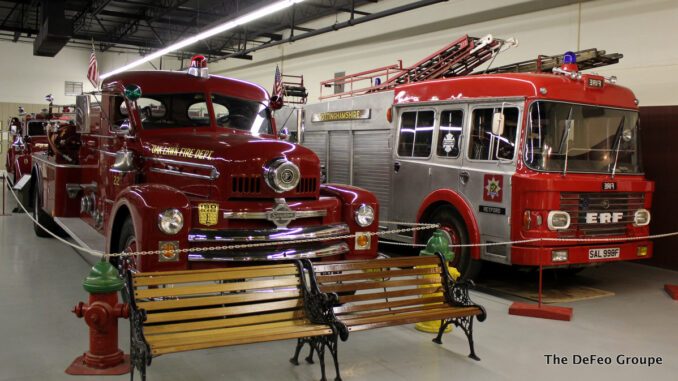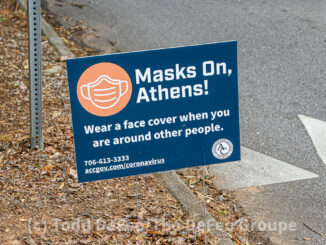
When it comes to an appreciation of firefighting and the equipment firefighters use, the Hall of Flame Museum of Firefighting in Phoenix is an absolute must.
The museum has more than 100 resorted pieces of fire apparatus — some dating to the 18th century. The impressive collection of artifacts that bring to life the history of firefighting.
Here is what Mark Moorhead, the curator of education at the Hall of Flame Museum of Firefighting had to say.
Can you talk a little about the mission of the museum; what you hope people who visit learn?
The mission of the museum is to preserve and pass on the history and traditions of the fire service, both here in the U.S. and around the world, and to educate children and adults on proper fire safety practices. I hope that visitors to the museum leave having been both entertained and inspired by seeing the resourcefulness and ingenuity with which firefighting technology was developed, and by the courage and devotion to community required to keep fire under control.
What are people who visit the museum most surprised to learn?
I think people are often surprised to learn that the history of firefighting, though colorful and heroic, hasn’t always been noble—that firefighters in big cities in the 19th Century were sometimes little more than gangsters and political parasites availing themselves of the privileges of being a firefighter, like exemption from the draft, jury duty, local taxes and the like. They’re often surprised at the insurance industry’s role in the development of the fire service, and at how big city-wide fires like the Great Chicago Fire, tragic though they were, often led to the development of better building and safety codes and, therefore, to safer cities.
When I visited, I was fascinated by how many different types of engines there are — recognizing engine is probably the wrong term as some were horse-drawn. Are there particular engines or artifacts in the museum’s collection that are the most popular among visitors?
“Engine” is NOT necessarily the wrong term for horse-drawn apparatus; as firefighters like to say, all fire trucks are fire engines, but not all fire engines are fire trucks. A hand pumper or steam pumper, for instance, is certainly a fire engine. We have a hand-powered British pumper from 1725, seven years before the birth of George Washington, that could spray sixty gallons of water per minute onto a fire. One of the pieces that has the biggest impact on our visitors, however, is not a fire engine. It’s our beautiful 1870 Buckley & Merritt parade carriage from the Hotchkiss Fire Department of Derby, Connecticut; people often say that it looks like what Cinderella went to the ball in.
What’s next for the Hall of Flame — aside from reopening after COVID-19? Are there exhibits the museum would like to create or artifacts it would like to add to its collection?
Well, during the time we were closed we took the opportunity to get to some long-delayed projects; we had some areas of the museum re-painted and re-floored, and this year we’ve added new exhibits on the history of EMS and the firefighting comic strip Smokey Stover, and a model of a 1933 Ahrens-Fox pumper.
What else would you like people to know about the Hall of Flame?
We’ve changed our hours. We’re now open Tuesday through Saturday, 10 a.m. to 6 p.m., closed Sundays and open Mondays only for pre-booked tours of ten or more people. You can call 602-275-3473 for details on booking tours for adults, kids, school field trips, church groups, day care centers, outings for special needs groups and so forth.
For more information, visit hallofflame.org.





